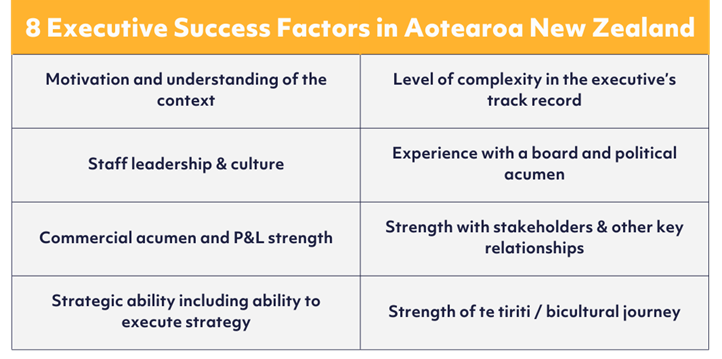The following article was written by David Hammond for the March 2024 Issue of the New Zealand Local Government Magazine:
If it feels that hard to you as a governance board member, or a C-Suite executive, you are not alone.
The reality is that the world in 2024 is incredibly more complicated than even a decade ago. This isn't just for the local government sector - this is for the commercial and public sectors, and for charities too.
There is no doubt that the uncertainty is impacting on households, companies and farms, and therefore the entire economy. The uncertainty and the stress is polarising opinion and communities and making consensus decision-making very hard. Yes, it’s tough out there!
How to assess the right leadership
Tribe Leadership Executive Search is taking a very different approach to adapting to the challenges of high performing leadership in 2024 – both identifying it and nurturing it. Over the past 12 months we have put 120 top performing executives through the ringer to test our thinking on high-performance leadership. The executives themselves say that it is more detailed than other processes they go through. There is a point to it all. We want to double the evaluation and the validation of executives’ skills and their fit to the sector they are interested in.
The first ‘120 Report’ is coming out soon and will be free to access. But let me give you a spoiler. Tribe Leadership Executive Search has identified 8 common attributes across sectors associated with high performing leaders in New Zealand. These are:

Tough Times LG Leadership
What I would say regarding the local government sector is that amongst the 8 skills that are mentioned in the table above, I work with the client, and broader engagement, on which skills (given the context) need to be ‘weighted’ more than others. This forms the basis of the head-hunting search across New Zealand and overseas. Consistently what emerges in the public sector – and by extension – local government - is that for success, a stronger weighting needs to be placed on:
- Experience with a board and political acumen;
- Strategic ability including ability to execute strategy;
- Strength with stakeholders & other key relationships;
- Level of complexity in the executive’s track record.
Again, all 8 skills are essential, but these four are coming out in the current climate of ‘tough times’. Let’s discuss each of these and their importance to LG Leadership:
Experience with a board and political acumen: Chief Executive applicants need to understand the complexity and pressure that the governance environment is under, and how that translates to them and to staff. They also need the experience with forming the trust and relationships to be able to advance difficult projects and to advocate for funding in resource constrained environment. Boards want to trust their Chief Executives but this needs to be earned. This attribute is not generally associated with applicants wanting their first Chief Executive role, or those from the private sector.
Strategic ability including ability to execute strategy: Our public sector clients want genuine strategic expertise coming into the role, where often the board members are ‘generalists’ in the sector themselves. In the degree of complexity they are facing, they want the Chief Executive to make clarity out of disruption and assist the Board with consensus over the priorities. This points toward a Chief Executive with the track-record of validated delivery results to time and budget. Applicants always think they are ‘strategic’ and this needs validating. Did they develop strategy themselves, or did they commission consultant to do the work for them?
Strength with stakeholders & other key relationships: In the public sector they say, “the currency of Wellington is relationships” and I say that “currency of Auckland relationships is coffee.” The point is that to get things done requires the Chief Executive involved in opening doors and forming authentic partnerships with iwi and other partners, negotiating Public Private Partnerships and invested themselves (not just delegating to other staff). We are looking at evidence of this strength and track-record in the candidates.
Level of complexity in the executive’s track record: This skill is the degree of complexity in the background of the aspiring Chief Executive. In this LG sector, commercial experience alone is not a strong launching point because the drivers are often revenue based, the complexity of their work is much less than LG which manages some 26 services (compared to a Power Company managing only one service), and commercial companies may have more money. Clearly that is a generalisation, but I think you get the point. If the role is complex in requirements over major capital or operational transformation, we are unlikely to see that from a banking resume.
I welcome the opportunity to speak with you confidentially about your needs in recruitment or advice to a committee. If you are a C-Suite executive, we can now assess your skills and work out how strong they are compared to the market (the 120 top performing executives). This can guide you in where the gaps are compared to your competition.
![]()
David Hammond has recruited some 45 Chief Executives and is Lead for Tribe Leadership Executive Search Consulting and Public Sector who developed the Tribe Leadership Assessment Centre and high performance framework.




